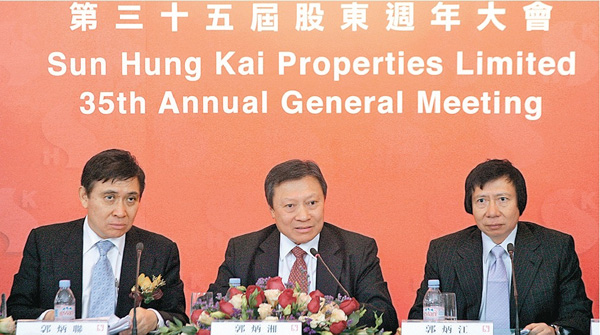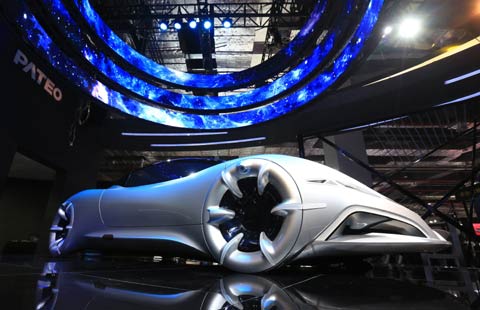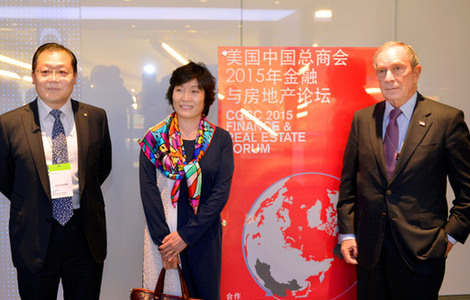Handover blues
Updated: 2015-04-10 08:55
(HK Edition)
|
||||||||
 |
|
Infighting among the children of deceased tycoons, such as the Kwok brothers of Sun Hung Kai Properties, make for classic tabloid fodder. Provided to China Daily |
Hong Kong, where family-controlled businesses rank as the most important, seems to be a place where succession procedures do not always go according to plan.
According to the list of Hong Kong's 50 Richest People released by Forbes in January, as many as 19 billionaires in the city are aged 70 or older, and the succession of new business leaders has to be settled sooner rather than later.
"Compared with their mainland counterparts, the city's business owners, whose companies are in the third or fourth generation of family-held operation, are still indifferent to or inexperienced at going about succession planning," said Kitty Chung, Hong Kong-based assurance and business advisory services partner at PricewaterhouseCoopers.
The troubling fact is that just 27 percent of business owners in the city have succession plans in place for some senior roles.
And when talking about implementation, a worryingly low four percent say they have a robust succession process in place, even lower than the percentage on the mainland, added Chung, citing PwC's latest family business report published last October.
Unlike the mainland where business owners can be really vexed by their grown only child who may balk at the notion of going in and running the family business empire, the succession planning issue manifests itself quite differently in Hong Kong, said Lee Woon Shiu, Singapore-based managing director and head of wealth planning at Bank of Singapore.
Multiple children do give the patriarch/matriarch more choices in succession planning yet it proves fairly tricky to make every child feel satisfied with the plan, added Lee.
"Many far-sighted business owners may spend years drafting and implementing a succession plan, only to find their hard work lights the fuse of long-range family squabbles between the heirs or between heirs and employees, which come close to sinking the business," noted Lee.
Lee believes the succession planning puzzle facing Hong Kong relates not to the carrying out of plans but how well those plans eventually work out.
The city is no stranger to high-profile family wrangling following a problematic succession plan and poor transitions always lead to public embarrassment.
Sun Hung Kai Properties (SHKP) of Hong Kong has been hurt by squabbling among the three sons of its founder Kwok Tak-seng while the public scraps among Macao casino king Stanley Ho Hung-sun's extended family and the courtroom dramas sparked by tycoon Henry Fok Ying-tung's descendants even seven years after his death really make for classic tabloid fodder.
One common problem with Fok's succession arrangements and Kwok Tak-seng's setup was the lack of an exit mechanism from the family ownership structure for non-interested family members, noted Lee.
When children are not able to maintain family harmony after the founders pass away and one member tries to buy out the rest, an outrageous price could be demanded and a family dispute could erupt. Any prolonged infighting could undermine the business, Lee warned.
As extended families grow, company founders and current owners should undertake the often painstaking process of drafting the "family constitution", defining decision-making, accountability, and responsibility based on the family spirit and interests within the family circle.
"The concept of a family constitution relates to making sure everything comes with rules to follow," observed Lee. "Compared with western counterparts whose family constitutions lay more stress on self-realization, Asian families draft their constitution with much more emphasis on its inclusiveness, in order to ensure family harmony."
But the line between family governance and corporate governance should not be blurred as Asian business founders traditionally manage their companies and staff like a family.
More and more business owners in Hong Kong are coming to realize that the overlap between family relations and business concerns should be largely avoided, Chung pointed out.
And the idea of bringing in professional managers from outside is being welcomed by a growing number of founders, who would earlier see it as a source of risk, he added.
As for their mainland counterparts, many of those who do not have several offspring to choose a successor from could likely bring in some fresh executive talents, she noted.
"Poor transitions in this city serve as a reminder that squabbles can wreak havoc with a family business if the handover to the next generation is badly managed," said Chung.
"These are lessons that mainland and Hong Kong business owners alike must draw to break the traditional curse that 'wealth doesn't last three generations'."

 Ten photos you don't wanna miss - April 23
Ten photos you don't wanna miss - April 23
 Concept cars in spotlight at Shanghai auto show
Concept cars in spotlight at Shanghai auto show Volcano erupts in southern Chile, belching ash, smoke into sky
Volcano erupts in southern Chile, belching ash, smoke into sky
 US returns ancient artifacts to Egypt
US returns ancient artifacts to Egypt
 Unusual libraries around the world
Unusual libraries around the world
 Chinese real estate deals in US topical forum
Chinese real estate deals in US topical forum
 Weird stuff you can buy on Taobao
Weird stuff you can buy on Taobao
 Top 5 wealthiest women in world's tech sector
Top 5 wealthiest women in world's tech sector
Most Viewed
Editor's Picks

|

|

|

|

|

|
Today's Top News
Nuclear cooperation proposal lauded
Furious 7 on track to be tops in China
As PayPal split looms, eBay plans to think small
China loves almonds from water-thirsty California
China sustains US cities: Bloomberg
Real estate investors may switch focus: panel
Obama submits nuclear energy cooperation deal with China
US urges Japan to handle wartime history in constructive way
US Weekly

|

|






